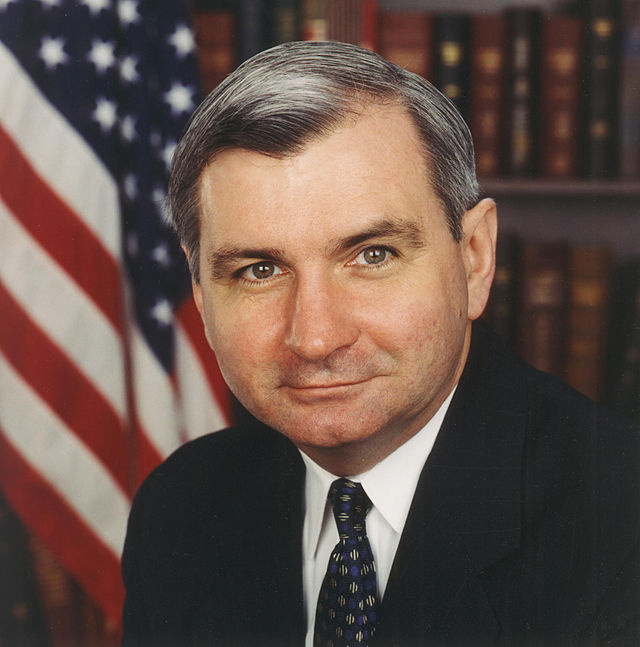It takes a village

Nancy Pelosi had the most public-facing role in Biden stepping down from the nomination in July and was probably the single most important figure, but it’s not terribly surprising to learn that a group of senators played a critical role. having the kind of conversations Barry Goldwater and John Rhodes had with Nixon in 1974:
Senator Jack Reed, the West Point graduate, Army veteran and Rhode Island Democrat who leads the Armed Services Committee, is hardly known as a troublemaker prone to rash statements.
So when Senate Democrats gathered privately with President Biden’s top political advisers last month to assess Mr. Biden’s capacity to remain the Democratic presidential nominee, the decision by the normally taciturn Mr. Reed to be among the first to speak was notable. What was even more remarkable was what he said, according to two attendees: If Mr. Biden wanted to stay in the race after a disastrous debate performance that underscored concerns about his condition and mental acuity, he should submit to examination by two independent neurologists who were willing to report their findings at a news conference.
It was a striking position for a Democratic loyalist to take, and one that underscored the near unanimity among Senate Democrats in the room that day that Mr. Biden should not continue as the party’s nominee. It was just one of a series of extraordinary moments during a closed-door session on July 11 that would lead Senator Chuck Schumer, Democrat of New York and the majority leader, to schedule a face-to-face meeting with the president days later in which he urged Mr. Biden to withdraw.
The effort by Mr. Schumer and Senate Democrats to persuade Mr. Biden to step aside was a more pivotal factor than previously known in bringing about the president’s exit from the race, as he found himself with scant support in the chamber that had been his political home for 36 years.
Representative Nancy Pelosi, who appeared on television hinting at her concerns about Mr. Biden and privately made the case that he could not win, has widely been credited as the chief architect of the quiet but intense drive to sideline the president. But behind the scenes, Mr. Schumer and his colleagues — along with Representative Hakeem Jeffries of New York, the House Democratic leader, and former President Barack Obama — were also playing a powerful role.
Mr. Schumer was spurred to action after it became abundantly clear that Senate Democrats, Mr. Biden’s closest political allies on Capitol Hill, believed that he was putting them and his legacy at risk should he stay in the race against former President Donald J. Trump, an assessment that helped move the president to his ultimate choice.
Can’t cross the Rhode Islanders!
The clear takeaway is that the formal and informal Democratic leadership as well as the bulk of its elected officials were all on the same page, because 1)people who had the chance to interact with Biden had serious concerns about his ability to campaign and/or serve 4 more years that they did not have even a year previously, and 2)members of the Senate in particular understood that a top of the ticket running double-digits behind Senate battleground candidates was more likely to pull the Senate candidates down than they were to lift Biden up. This doesn’t take anything away from Pelosi, but this was collective action, not the idiosyncratic crusade of one powerful figure.
